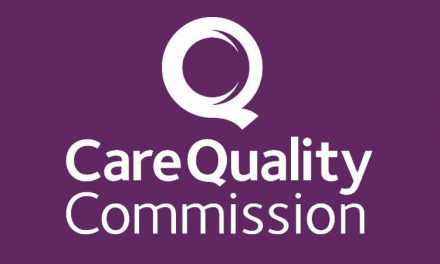By Lucy Caulkett
The British government has asked the Care Quality Commission (CQC) to review the use of restrictive interventions on those with mental health problems and learning disabilities and/or autism in hospitals and care homes.
The order comes in the wake of allegations of excess restraint used in residential; care homes on people suffering with mental health problems or who have a learning disability. Other concerns voiced in relation to the care of vulnerable individuals under this group include general poor care and institutional abuse. Working alongside the CQC on the review will be NHS England, NHS Improvement and Ofsted . They are collectively scheduled to report back to the government in March 2020, with interim findings expected in May 2019
The CQC will review and make recommendations on the use of physical restraint, prolonged seclusion and segregation in settings that provide inpatient or residential care for people with mental health problems, and a learning disability.The review is also expected to extend to the inclusion of autism. The s report will look at the quality and accessibility of mental health services for children and young people Mental health care is funded, commissioned and provided by many different organisations that do not always collaborate in the way they are expected to. As a result, too many children and young people have a poor experience of care and some are unable to access timely and appropriate support..
The challenges facing many organizations and individuals who work with children and young people are vast. They do not always have the skills or capacity to identify mental health problems. As a consequence, they often lack the right level of support to help vulnerable young children. With a notable rise in the diagnosis of mental health problems, professionals in this domain face increasing challenges of a complex and fragmented nature.
Ultimately, safety is considered to be one of the greatest overall areas of concern in specialist child and adolescent mental health services.
The review will first look at specialist NHS and independent hospital wards for adults and children, including assessment and treatment units. It will subsequently move on to consider mental health rehabilitation and low secure wards, widely examining how restrictions are applied. The CQC review will also include visits to services, interviews with people who have been subject to segregation or prolonged seclusion . It will include families and carers, in addition to analysis of relevant data, guidance and research. It is aimed at improving the quality of access and services.
Sara Ryan, the mother of Connor Sparrowhawk, who died in an NHS Trust unit in 2013, said: “The timescale is woeful and reflects a layer of indifference to this issue that is symptomatic of the sustained impoverished treatment of certain people in our society.”
“I would like the CQC to actually think about the people and children who will experience restraint, prolonged exclusion and segregation for a further fourteen months. These people are human and should not be subjected to such barbaric practices,” added Ryan, who is also a disability academic and a campaigner for the rights of people with learning disabilities.
CQC deputy chief inspector of hospitals (lead for mental health) Dr Paul Lelliot acknowledged there was “public concern” over the use of restraint and other restrictive techniques used on people with learning disabilities, he said:
“It is vital that services minimize the use of all forms of restrictive practice and that providers and commissioners work together to find alternative, and less restrictive care arrangements for people who are currently subject to seclusion or segregation. Failure to do this has the potential to amount to inhumane and degrading treatment of some of the most vulnerable people in our society.
“The experience and perspective of the people affected by these practices, either as a patient or as a carer, will be central to this work. It is vital that society protects the rights, welfare and safety of children and adults with a mental illness, learning disability or autism and that they receive the safe, high quality care that they deserve.”




